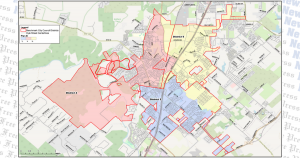Business
Kyle tapped for wastewater pilot program
A Colorado-based company has chosen Kyle as a location to conduct a pilot wastewater treatment program that could save the city money in the future.
BioDAF Water Technologies, based out of Golden, CO, will set up a pilot wastewater treatment program in Kyle. The move came after the Kyle City Council approved an agreement with BioDAF at the May 2 city council meeting.
Kyle is participating in the agreement to provide BioDAF the opportunity to test its technology at no risk to the city, said Jason B...









